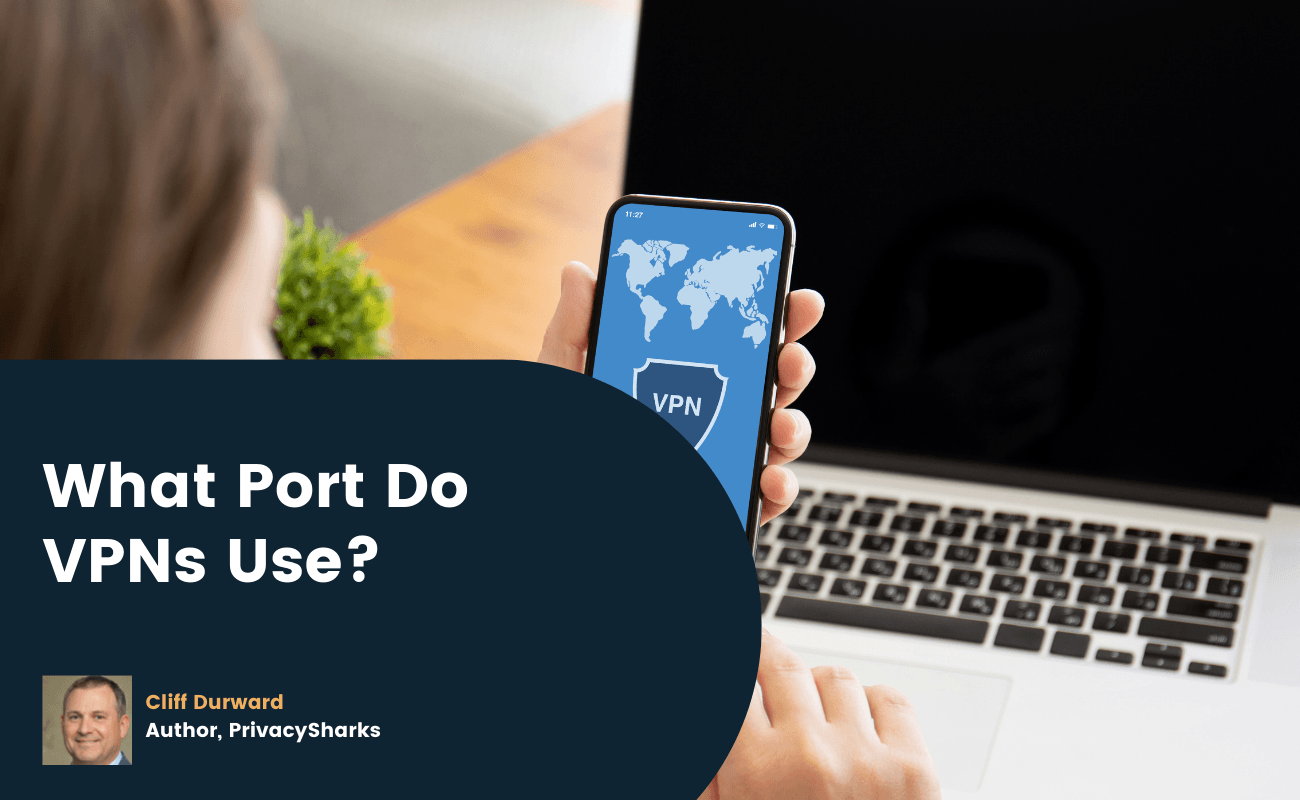
When it comes to establishing a secure connection over the internet, you want to have as many options available as possible. There are a lot of types of VPNs that offer different protocols and ports, and the level of security you have depends on the protocols and ports you use. In this article, we will explore what some common types of VPN protocols are and which specific ports they use.
The list includes different types of VPN protocols such as PPTP, L2TP/IPSec PSK (pre-shared key), OpenVPN TCP/UDP, IKEv2 UDP, and SSTP.
What Ports Do VPNs Use?
Below are the most popular VPN protocols with the different types of ports they use:
- PPTP (Point-to-Point Tunneling Protocol) – This protocol uses TCP port 1723. PPTP is often used to access a Microsoft Remote Access Server.
- L2TP (Layer Two Tunneling Protocol) – Layer Two Tunneling Protocol uses various port numbers; TCP port 1701, UDP port 500, and UDP port 4500.
- IPSec (Internet Protocol Security) – Internet Protocol Security uses UDP port 500 and UDP ports 4500.
- OpenVPN – This protocol uses TCP or UDP protocols on port 1194 and TCP port 443. You’ll enjoy a secure connection with this protocol.
- IKEv2 – This protocol uses UDP ports 500 and port 4500.
- SSTP (Secure Socket Tunneling Protocol) is also known as SSL (Secure Sockets Layer) – This protocol uses TCP port 443. It uses a private key to encrypt data and this is another great combination to establish a secure VPN connection.
What is a VPN Port?
A VPN port is a Virtual Private Network port. It’s just like your traditional Internet Service Provider (ISP), but there are some really cool features that make it unique and special (like the encryption). If you encrypt data, this makes it virtually impossible for third parties to see what you get up to online.
You can think of a Virtual Private Network as an extra layer for protecting your data when you’re browsing online or using other internet resources.
The “port” part of a VPN comes from how this type of connection works: A user logs on to their computer through one port in order to access another server via another different port. Basically, when users establish secure VPN connections, all VPN traffic gets routed via these secure ports. Therefore, people who want privacy don’t have any worries about their ISP or corporate networks sniffing out what websites they visit while web surfing!
Unsafe VPN Ports to Avoid
As mentioned in the list above, the Internet Key Exchange (IKE) protocol uses Port 500 to establish a VPN connection. This is a popular VPN protocol and port combination type, so it can be found in many different web browsers and operating systems. However, this port has known vulnerabilities that hackers have been able to exploit in order to gain unauthorized access to the system.
PPTP or Point-to-Point Tunneling Protocol also runs on ports 1723 through 1729. The Point-to-Point Tunneling Protocol and the ports its connections run on are considered unsafe because they’re statically assigned by the service provider and require special configuration of firewalls along with other IT requirements from your computer’s network hardware manufacturer for proper implementation.
So, if you do connect to a VPN with the protocols above, then make sure that they don’t conflict with any other software running on your machine!
Here are some other ports we recommend you don’t use on VPN connections:
- TCP port 21
- TCP port 23
- TCP/UDP port 53
- TCP port 80
- TCP port 1080
- TCP port 4444
Why Use a VPN?
Virtual Private Networks offer a number of advantages. They are most popularly used to access the Internet without getting caught (e.g., at work). A Virtual Private Network can also help you stay safe by encrypting your data from one end to another via a secure VPN tunnel so that no third party will ever have access to it. This makes your information and traffic, less vulnerable to cyber attacks.
With VPN access, you can also use websites or services which may be blocked in certain regions due to a firewall like Spotify, Netflix, Hulu Plus, Pandora Radio, or even Facebook! This makes VPNs necessary if you travel for work or leisure and want to use sites that you would at home.
If you’re wondering if you need a VPN at home, then you do. Internet Service Providers (ISPs) keep tabs on what you’re doing on private networks, making VPN usage important, even in your own home.
Some things do need to be considered when using a VPN solution to encrypt data:
- Privacy is an important consideration with any type of computer software but especially since this information includes anything about you including what sites you visit on a daily basis. You should use VPNs that don’t keep any logs whatsoever.
- Speed is another important factor and you want a VPN that is lightning fast. You want to be able to download files and stream videos on Netflix without any interruption. Connect to a nearby server for faster speeds.
- The cost is also something that you need to consider before subscribing to a VPN service provider because some providers offer monthly plans while others prefer an annual payment system which could mean saving money in the long run if they’re offering a good deal.

Hi, I'm Cliff. I'm based in Cleveland, Ohio, with my wife and two kids.
I have a keen interest in cybersecurity and have been writing about it for around a decade now. Due to my background in computer science, I am familiar ...
Read more about the author